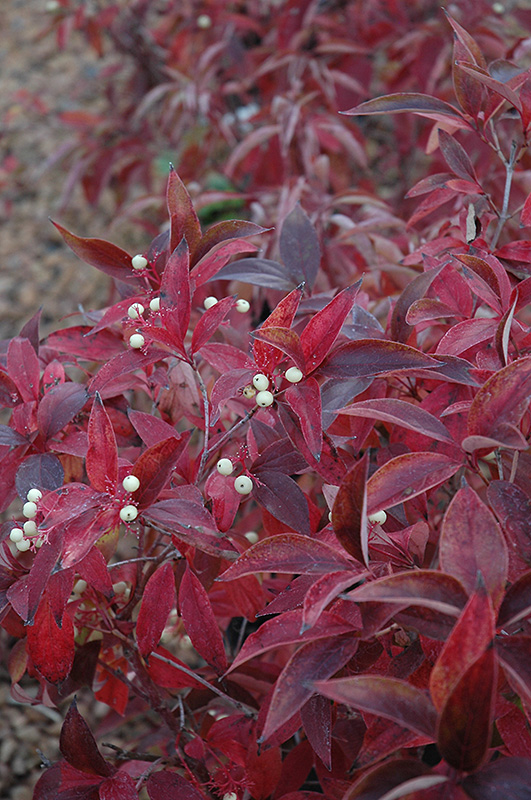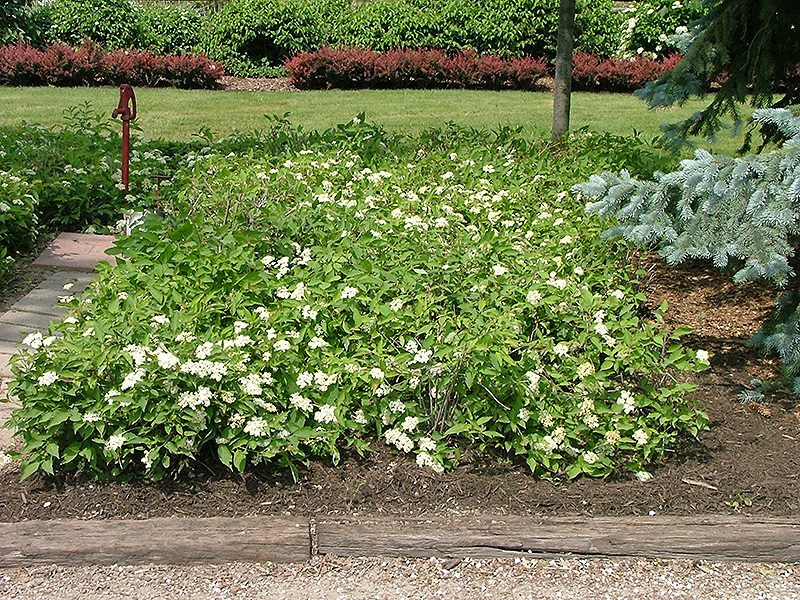Muskingum Gray Dogwood
Cornus racemosa 'Muszam'
Height: 3 feet
Spread: 5 feet
Sunlight:
![]()
![]()
Hardiness Zone: 4
Other Names: Gray Dogwood
Description:
Highly ornamental spring, summer and fall, with attractive fruit, leaves and berries; emerging foliage has reddish hue; this low growing spreader makes a good groundcover
Ornamental Features
Muskingum Gray Dogwood is primarily grown for its highly ornamental fruit. It features an abundance of magnificent white berries in late summer. It has clusters of creamy white flowers at the ends of the branches in late spring. It has grayish green deciduous foliage which emerges burgundy in spring. The glossy pointy leaves turn an outstanding dark red in the fall.
Landscape Attributes
Muskingum Gray Dogwood is a dense multi-stemmed deciduous shrub with an upright spreading habit of growth. Its average texture blends into the landscape, but can be balanced by one or two finer or coarser trees or shrubs for an effective composition.
This shrub will require occasional maintenance and upkeep, and can be pruned at anytime. It is a good choice for attracting birds to your yard. It has no significant negative characteristics.
Muskingum Gray Dogwood is recommended for the following landscape applications;
- Mass Planting
- Hedges/Screening
- General Garden Use
- Groundcover
- Naturalizing And Woodland Gardens
Planting & Growing
Muskingum Gray Dogwood will grow to be about 3 feet tall at maturity, with a spread of 5 feet. It tends to fill out right to the ground and therefore doesn't necessarily require facer plants in front. It grows at a medium rate, and under ideal conditions can be expected to live for approximately 30 years.
This shrub does best in full sun to partial shade. It is very adaptable to both dry and moist locations, and should do just fine under typical garden conditions. It is not particular as to soil type or pH. It is highly tolerant of urban pollution and will even thrive in inner city environments. Consider applying a thick mulch around the root zone in winter to protect it in exposed locations or colder microclimates. This is a selection of a native North American species.



